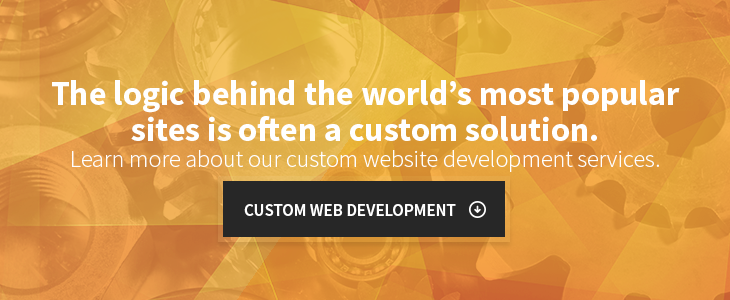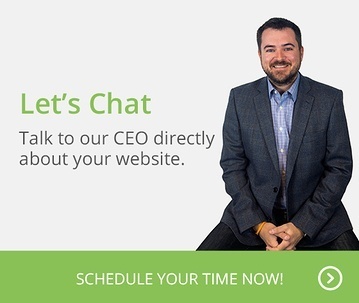For many website projects, WordPress seems like a convenient framework. Because of its template-based system, you can set up a website quickly while managing content through its popular dashboard structure.
Although the widespread availability and ease of setup are appealing, this does not necessarily mean WordPress should be your default go-to platform for building a website. In fact, depending on the purpose of your website, going with a template-based platform is actually a bad idea.
Here are 4 types of projects you should NEVER build on WordPress.
1. Portals And Intranets
Many enterprise groups' internal communications are based on intranets and portals in order to improve information availability and employee performance. Intranets and their portals enable individual departments to share relevant information with colleagues, while marketing and executive teams have an easier time communicating with their staff.
As you might imagine, this internal structure looks very different from an external-facing website. It will require employee login and a variety of security levels that allow different employees to access (and edit) varying sections. Simply put, building out such a complex platform on WordPress is a nightmare.
2. Advanced E-Commerce
Thanks to a number of external plugins, WordPress websites can accommodate basic e-commerce functionality. That's all well and good for a shop that doesn't have a lot of products or any special features.
But what if your requirements go beyond a simple shopping cart, payment, and single purchase model? Subscriptions to e-commerce models are rapidly gaining popularity, with services like Blue Apron and BirchBox offering recurring products for a monthly price. Even Amazon offers some of its products on a recurring basis.
Even with the use of external plugins, any type of recurring revenue model is difficult to handle. You simply don't have the freedom to set up your subscription model exactly the way you intend—not without a lot of bending and breaking anyway. WordPress was originally built as a simple blogging platform, which is evident as soon as you go beyond basic levels of e-commerce.
3. High-Security Websites
We have covered the problem with security in WordPress extensively in this space. Because millions of websites use the same basic CMS throughout the world, it has become a known target for hackers, forcing WordPress to regularly change its code due to security breaches.
This is a major issue, as internet security has become such a news-dominating topic. Depending on the data you store in the CMS, you simply may not be satisfied with the level of security and encryption WordPress provides. Potentially losing your visitors' contact information is an issue, but losing confidential data is a whole different story.
4. SaaS Platforms
Building a SaaS platform requires many of the subscription features mentioned above, but comes with additional challenges as it relates to WordPress. Most importantly, you will have significant difficulty building out a truly custom version of your envisioned business model on WordPress, as you're essentially building a software platform on top of another software platform.
In addition, the software platform will never be truly yours. WordPress is, at its core, still a content management system, not a platform designed to build a SaaS products. The limitations range far and wide.
In short, WordPress can work to help you start a basic, content-based internet presence. But as soon as your requirements become more complex, you begin to reach its limitations. Security and simple functionality concerns could morph into major problems, which a template-based platform like WordPress simply cannot solve.
So if your project deals with these limitations, consider a custom CMS instead. The more complex you intended your web presence to be, the more likely you are to lay the groundwork for future problems due to platform limitations.



